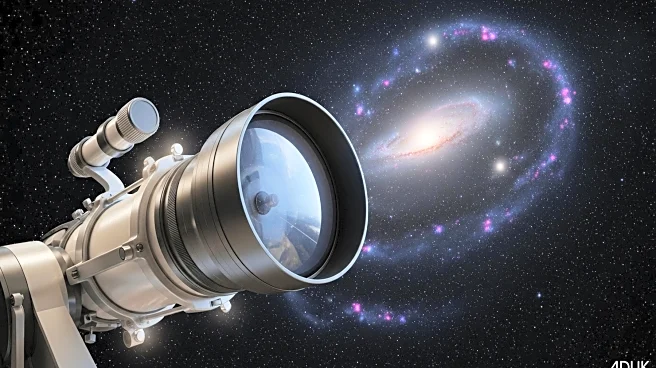What's Happening?
The James Webb Space Telescope has observed a black hole that may have been created moments after the big bang. This 'nearly naked' black hole challenges existing theories, as it appears to have formed without a preceding galaxy. Primordial black holes are hypothesized to have formed in the first fraction of a second after the big bang, acting as gravitational pockets around which the first galaxies clustered. The discovery could upend prevailing theories of the universe's formation.
Why It's Important?
If confirmed, the existence of primordial black holes would have profound implications for our understanding of the universe's formation and the fundamental laws of physics. This discovery challenges the mainstream view that stars and galaxies appeared first, prompting a reevaluation of cosmic evolution theories. The findings highlight the importance of continued exploration and observation in advancing scientific knowledge.
Beyond the Headlines
The potential confirmation of primordial black holes raises questions about the nature of the universe and the processes that shaped its early development. It encourages exploration of alternative theories and underscores the dynamic nature of scientific inquiry. The debate over primordial black holes highlights the importance of considering diverse perspectives in cosmology.










